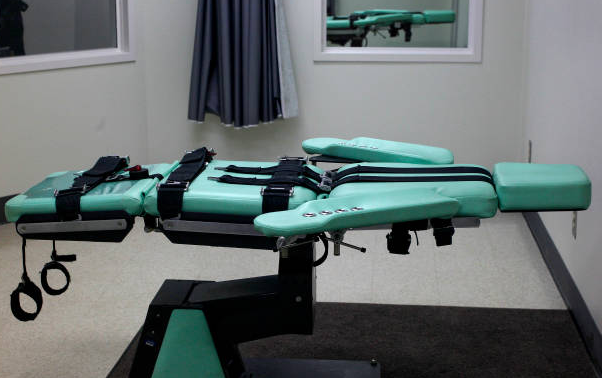
The scheduled execution of Thomas Eugene Creech, a serial killer convicted of multiple murders spanning three states, was abruptly halted in Idaho due to complications with establishing an intravenous line for the lethal injection.
Creech, 73 years old and one of the longest-serving death row inmates in the United States, was slated for execution at the Idaho Maximum Security Institution.
Execution on Hold
Medical personnel attempted to set up an IV for the lethal injection but encountered significant challenges. Despite multiple efforts, including trying various sites on Creech’s body, they were unable to secure a suitable vein. The execution was eventually called off after nearly an hour of attempts.
The Idaho Department of Corrections announced that Creech’s death warrant would expire, prompting consideration of the next steps. While alternative methods may exist for execution, officials are mindful of constitutional provisions against cruel and unusual punishment, particularly under the 8th Amendment.
Creech’s attorneys swiftly filed for a stay in federal court, citing the botched execution attempt as evidence of the department’s incompetence in carrying out a humane and constitutional execution. The Idaho court granted the stay, requiring the state to obtain a new warrant if it intends to proceed with the execution in the future.
Read more: San Francisco Confronts Systemic Discrimination Against Black Community
Idaho Faces Criticism Over Lethal Injection Procedure

Critics, including the Federal Defender Services of Idaho, raised concerns about the execution process, highlighting the risks associated with inexperienced individuals conducting such procedures. The execution team, composed of volunteers with medical training, operated anonymously behind balaclavas and scrub caps.
During the halted execution, Creech, restrained on the gurney, frequently glanced towards his family members and representatives present in a separate room. Despite the tense circumstances, he conveyed gestures of affection towards them.
Creech’s legal team pursued various appeals in a last-ditch effort to halt the execution, but all avenues were ultimately exhausted, with the US Supreme Court denying a final petition just hours before the scheduled time.
The events surrounding Creech’s execution reflect broader challenges faced by states in carrying out lethal injections, with incidents of failed attempts and controversial methods sparking debates over the efficacy and ethics of capital punishment.
In Idaho, the prospect of utilizing firing squads as an alternative method awaits further legal and logistical developments, echoing similar discussions in other states grappling with execution protocol issues.
Read more: Disturbing Footage Emerges: Hawthorne Teen Assaulted By Multiple Assailants At Dockweiler Beach

